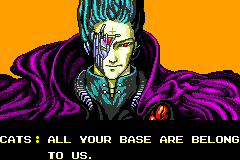What a long and (sometimes strange) trip its been since a group of stalwart government innovators published Social Media and the Federal Government: Perceived and Real Barriers and Potential Solutions in Dec. 2008.
Federal agencies are blogging, tweeting, sharing photos and videos, publishing data, running online public dialogues, texting, fanning and friending. Here's a great list in case you need to catch up.
Good news is that many of the policy barriers have been overcome and agencies are regularly using social media to communicate and, in some cases, serve the public. The complicating news is that the mainstreaming of social media has brought new eyes and challenges to light.
Two areas of increasing concern are the security of social networks and agency compliance with federal records requirements. I have heard that people in some agencies are asking if Twitter is FISMA compliant. Other folks are asking if their agency could comply with a Freedom of Information Act (FOIA) request for posts on their Facebook wall. Some are wondering how agencies should archive comments on YouTube and Facebook or @replies on Twitter.
This manifests itself practically in an office saying they won't allow use of Twitter since it hasn't been accredited in accordance with NIST SP 800-37 "Guide for the Security Certification and Accreditation of Federal Information Systems." Hunh? Or another office saying that there will be no comments, or that comments will be ignored(!), on their Facebook wall because to interact would create a government record. Whaa? Big barriers to participation, no?
I wonder. Do people who comment on government pages and channels expect that they are entering data into the federal record? Or are they thinking it's like a town hall or letter to the editor in a newspaper? Or more likely something for their other friends to see?
I wonder. Are agencies barred from using public social networks unless these private networks follow government security requirements? [And would they turn over security documentation for the public record?] Or are theses public commons in which the government engages, like the President giving a speech at a school or addressing the public as a guest on a cable TV show?
I wonder. Does government own or control third-party, private social media networks like Facebook, Twitter, and YouTube? Or is government a participant--like everyone else--in these communities.
Discuss.
Feb 21, 2011
Jan 2, 2011
Doing Gov 2.0 Backwards in High Heels
 I was reading the awesomely comprehensive 2010 roundup of Gov 2.0 by Alex Howard and stumbled into a little Twitter dust-up between Alex and one of his readers, Microsoft's public sector evangelist, Mark Drapeau.
I was reading the awesomely comprehensive 2010 roundup of Gov 2.0 by Alex Howard and stumbled into a little Twitter dust-up between Alex and one of his readers, Microsoft's public sector evangelist, Mark Drapeau.The twit-for-tat was around Mark's criticism that Gov 2.0 activities were focused on "govies, policies, and techies, and little citizens, services, engagement." He's right. There continues to be a lot of foundation-level work going on--like writing policies, creating governance, training, upgrading systems, cleaning up and making available data, etc. It makes it hard to see how this is having an impact on citizens and the public.
Then, Alex referenced Gov 2.0 impact on citizens
As the new year beckons, there are more ways for the citizens of the United States to provide feedback to their federal government than perhaps there ever have been in its history. In 2011, the open question is whether "We the people" will use these new participatory platforms to help government work better. The evolution of these kinds of platforms aren't U.S.-centric, either. Ushahidi, for example, started in Africa and has been deployed worldwide. The crowd matters more now in every sense: crowdfunding, crowdsourcing, crowdmapping, collective intelligence, group translation, and human sensor networks--O'Reilly RadarAlex is finding some Gov 2.0 activity that is actually touching people. A good start, but how does this play for my sister in Indiana?
But, as Mark went on,
he and I part ways.
The heady newness of the Open Government Directive and the first forays into social media are over. We look back wistfully, like on the faded blush of a new romance. That was fun! But now we are left to work in the trenches to realize the promise. Much less sexy, but critical to success.
This year has included some very important new guidance--for example on surveys (Paperwork Reduction Act), privacy (including cookies and participating in 3rd party networks), plain language and prize authority to name a few--that agencies are trying to apply. And there is increasing scrutiny, oversight, and evaluation from both within and outside of agencies.
It seems that nothing breeds slowdowns like success. The layer of people who like things "the way they are" are not excited about new ways of interaction. And some are pulling the many levers at their disposal to doubly ensure that all T's are crossed and I's dotted.
Then, there are many early evangelists who are practicing what they were preaching. Being change agents in their agencies mean that they are less available to take to the pulpits of conferences and blog posts to proselytize across agencies.
I am neither a wonk nor a geek. I am a citizen, though. I am a citizen who works in government. And I am a citizen who works in a government built on--and sustained by--a massive command and control bureaucracy from a pre-Internet and social networking era. I am a citizen who works in this slow-moving behemoth and trying to make change for my fellow citizens, not to serve wonks and geeks.
Folks working in the trenches welcome the thoughtful criticism of outsiders. We don't have all the answers and have plenty of blind spots. Keep our feet to the fire, help us make change, and keep caring! But, I gotta tell you, from an insider's perspective, this is harder than it looks.
Subscribe to:
Posts (Atom)


